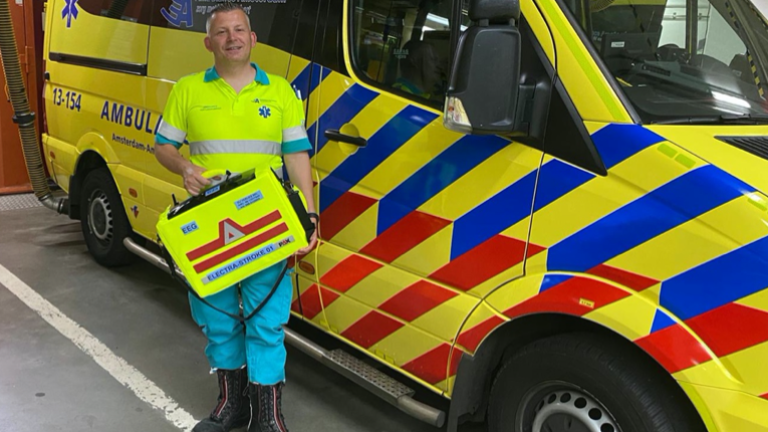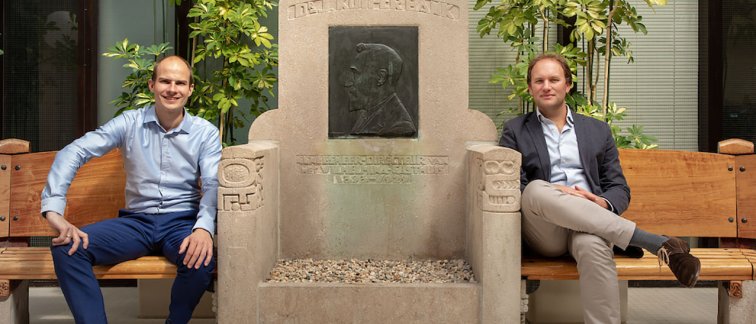Rationale
Endovascular treatment (EVT) has become the standard therapy for patients with large vessel occlusion (LVO) stroke. EVT is highly effective, but only if applied in a timely manner. Because of its complexity, EVT can be performed in selected hospitals only. Currently, half of EVT eligible stroke patients are initially admitted to hospitals that do not provide this therapy, which delays initiation of treatment by about one hour, substantially decreasing the chance clinical recovery of the patient.
This problem illustrates the need for a reliable prehospital triage method to identify stroke patients eligible for EVT in the ambulance. Electroencephalography (EEG) may be suitable for this purpose, as preliminary studies show that hemispheric hypoxia quickly results in slowing of EEG-signal. Dry electrode EEG-caps allow reliable EEG-measurement in less than five minutes by unexperienced users. In ELECTRA-STROKE we examine whether EEG is suitable for prehospital LVO-detection.
Methods
ELECTRA-STROKE is an ongoing diagnostic pilot study that consists of four phases. In phases 1 and 2, technical and logistical feasibility of performing dry electrode EEGs were tested in the outpatient clinic and Neurology ward of the Amsterdam UMC, location AMC. In phase 3, EEGs will be performed in 250 patients presented to the emergency room of the AMC with a suspected stroke. In the final phase of the study, ambulance paramedics will perform EEGs in a pre-hospital setting in 222 suspected stroke patients. The primary goal of the study is to develop an EEG algorithm for LVO-detection.
Progress
This study started in October 2018. Phases 1 and 2 have been successfully completed. In phase 3, 87 patients have been included thus far. Phase 4 started in August 2020; the first patient was enrolled on August 25, 2020.
Researchers involved
- Joffry van Grondelle, ambulance paramedic, junior researcher (Ambulance Amsterdam)
- Geertje Geuzenbroek, ambulance paramedic, senior researcher (Ambulance Amsterdam)
- Arjen Siegers, medical manager, local lead investigator (Ambulance Amsterdam)



